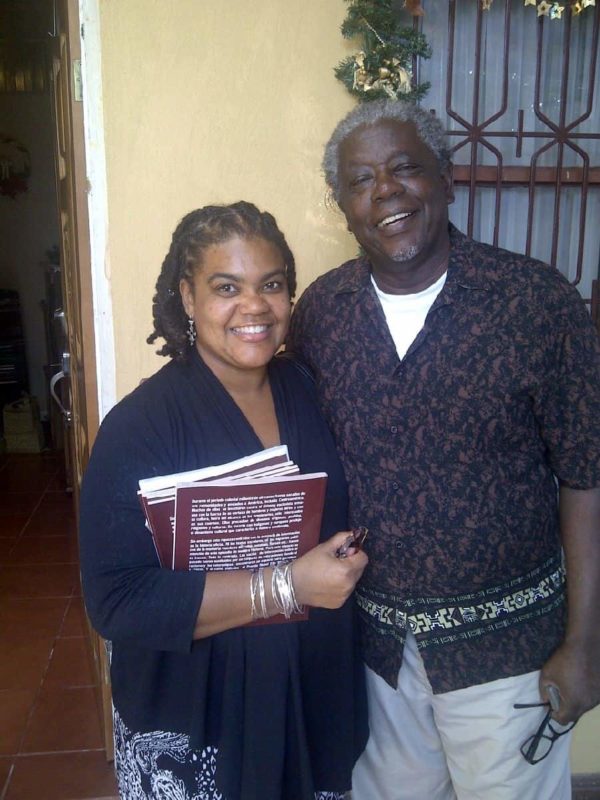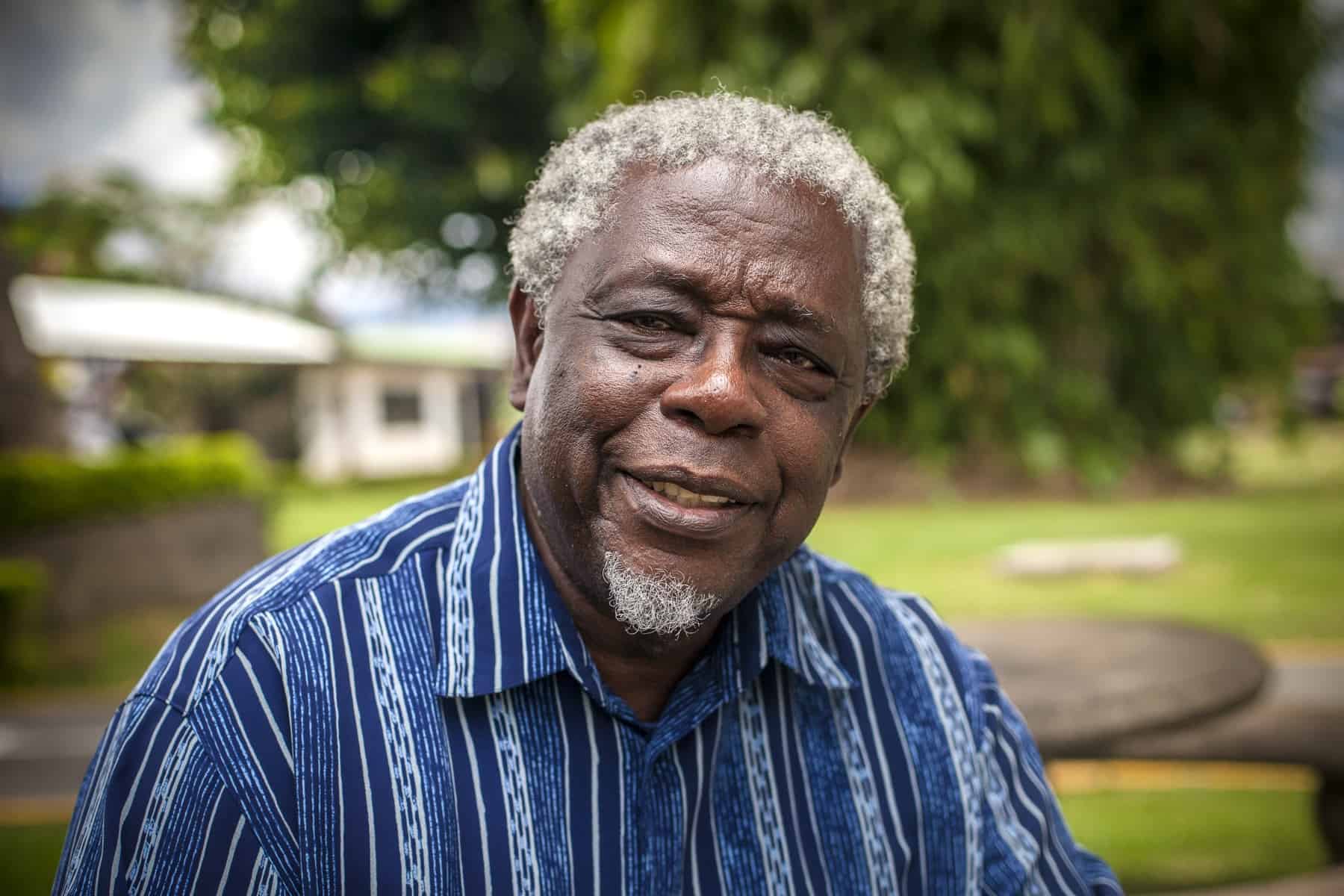About six years ago, when I was a just novice getting my feet wet in research about slavery in colonial Costa Rica, I managed to get an interview with the renowned writer Quince Duncan. Born in 1940 in San José, don Quince is celebrated as Costa Rica’s first Afro-Caribbean writer in the Spanish language. His literary production is prolific: he has written and co-authored over 40 books, including “Hombres Curtidos,” “Kimbo,” “El Pueblo Afrodescendiente,” “Un Señor de Chocolate,” “Los cuatro espejos” and “La Paz del pueblo.” His novel “A Message from Rosa” is written in English and Spanish.
His work focuses on the Afro-Caribbean population living on Costa Rica’s Caribbean coast, particularly around the city of Puerto Limón, though his current writing focuses on the indigenous populations in Costa Rica.
His novels and short stories have been awarded Costa Rica’s National Literature Prize and the Costa Rican Editorial Prize. A growing number of global scholars writing on Afro-Latinos are clamoring for more work by Duncan in English, and scholarly texts have explored his considerable contributions to the canon, including Dorothy Mosby’s “Quince Duncan: Writing Afro-Costa Rican and Caribbean Identity” and Dellita Martin-Ogunsola’s “The Eve/Hagar Paradigm in the Fiction of Quince Duncan.”
My initial interview with don Quince took place six years ago when I was visiting family over the Christmas holidays. It was my first solo venture in a bus and taxi in Costa Rica, from Quesada Durán in Zapote to don Quince’s house in Heredia, and I struggled with the directions – which, of course, included something like “500 meters to the house with the brown fence, then 200 meters to the pulperia.” Eventually, I got there accompanied by several neighborhood dogs.
The night before I had spoken to my Costa Rican mother in New York, telling her how excited I was to meet the famous writer. She stopped me in mid-sentence, asking what I knew about him. Little had I known that my mother knew don Quince through the Anglican Church in Siquirres, Limón, in the 1960s. Having this connection felt like a blessing when I finally arrived at his door.
I have always felt the elegance of Quince Duncan, from that first meeting when he allowed me to quiz him on Costa Rican history and his writing practice. I cringe now at the uninformed questions I must have asked – I’m not searching for that tape recording anytime soon – but the amount that I learned has made me see him as a “padrino” and a mentor. Because of his fifty-plus years of dedicated literary production and human rights activism, Quince Duncan is truly Costa Rica’s national treasure. (My question is, who from the younger generation will support his current work and keep the torch going? I am ready to volunteer!)
Now, six years later, we are long familiars, and I had a chance to sit down with him again this month. As the new Commissioner of the Ministry of Afro-Costa Rican Affairs, don Quince invited me to his office at the Casa Presidencial, where we discussed the state of Afro-Costa Rican affairs and his current writing projects. I also had the chance to congratulate him on the President’s Award he was given on June 4 in St. Martin at their 14th Annual Book Fair.
Excerpts follow.
Please share the current writing projects that you are involved in.
I am working on a collection of three short stories about the indigenous populations in Limón, focusing on the Matina Rebellion against the Europeans; the last Chief of the Talamanca region who was poisoned when he was vocal against the United Fruit Company; and lastly, the rebellion in Talamanca where the Europeans could not conquer the city. This collection is expected to be published at the end of 2016. The next novel is about the rebellion “de color,” by people of color during the Revolution in Cuba.
Some additional good news is that the University of Alabama may be publishing translations of two of my published novels. Lastly, I am working on a large project about the culture and history of Afro-descended populations in Latin America which is expected to be part of the AfroLatin@ Diasporas Book Series by Palgrave in the United States that should be out by late 2017.
The Ministry of Afro-Costa Ricans Affairs was established last year as part of the United Nation’s Decade of the Afro-Descendants. How did this come to pass?
The Office was set up at the request of the Costa Rican Afro-descended population during the campaign of [President Luis Guillermo Solís] and came to fruition in February 2015. Right now the Ministry has 17 goals that we hope can get accomplished by 2018.
What are the major initiatives of your office?
With the Ministry of Health, we have established a health protocol to focus a health initiative for Afro-descended populations who have historically been left out of the general social services in Costa Rica. We are targeting populations where we find concentrations of diseases such as glaucoma, which has a higher prevalence rate in people of African descent. We found higher concentrations in the people of Guanacaste than in Limón, which confirms that area had a large heritage of Afro-descendants starting from the 16th century. Within this initiative we are trying to create programs that are also culturally sensitive so that patients and doctors can communicate better. This program should be up and running by April 2017.
My office is also initiating an English-language program in Limón that will be funded by the National Learning Institute (INA). The goal is to train 2,000 people in English within 18 months. This project seeks not only to restore the use of English in this community but also to prepare for the new port that is being built in Moin, which promises jobs that require English. We are in partnership with the University of Costa Rica and other institutions where these courses can be offered. We are also working on the formal recognition of Creole English in Limón as part of the cultural and linguistic heritage of the community.
Through a process of working with local Black organizations in Limón, 170 young people have been identified to begin a skills training program that they can take alongside their high-school courses. Some of these young people are also outside the school system and are being supported so that they can get employment. This program is being co-sponsored by the Ministry of Labor and Finance.
Can you tell me about your work on the issue of racism?
Along with Dr. Rina Caceres and several others, I have begun a program of racial sensitivity training and workshops for the judiciary system, the police force and other policy makers. Once a month, regional activities around racism are being conducted. What we have found is that the need for information is so great that we are creating a course on a CD with an additional booklet that can be used in any professional setting for this type of training, as there are too few people doing this necessary work.
What I have found in these workshops is that most Ticos are unaware that they hold racist tendencies. Once they gain knowledge of this, they are open to self-reflect and do the work that will make the country more inclusive.
Once of the outstanding take-aways in some of these workshops is that many Ticos do not recognize what racism actually is. They have seen the public markers of racism in South African Apartheid or the Jim Crow Laws of the Southern United States. Signs that separated races were clearly racist. Since these public signposts were not used in Costa Rica, people automatically assumed there was no racism here and so, for instance, they cannot understand why “Cocori” is an offensive book to the Afro-Costa Rican population. These workshops opened up these types of radical, honest discussions.
Read more from Natasha Gordon-Chipembere here.
Natasha Gordon-Chipembere holds a PhD in English. She is a writer, professor who moved to Heredia, Costa Rica with her family from New York.







